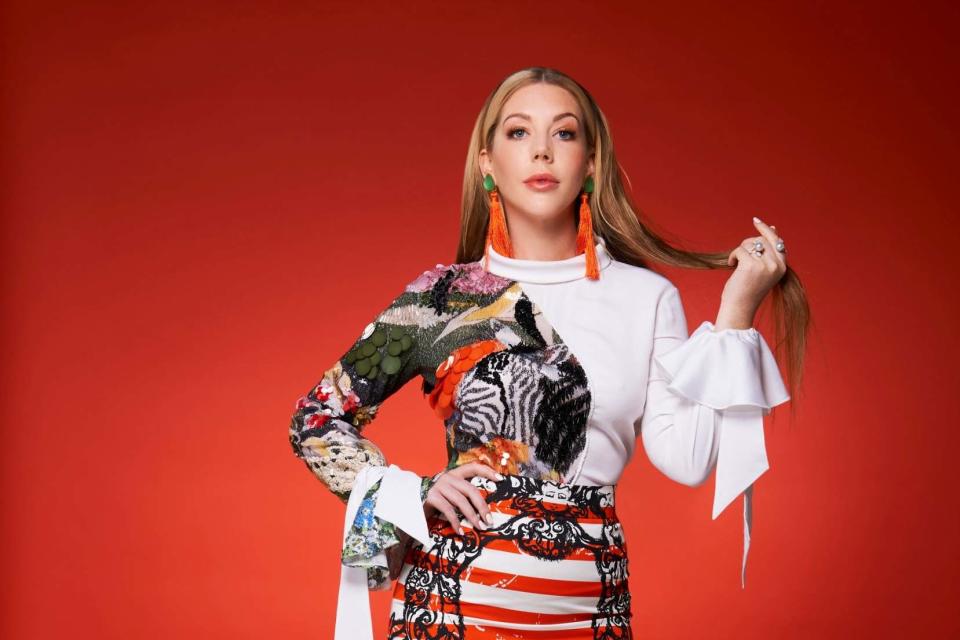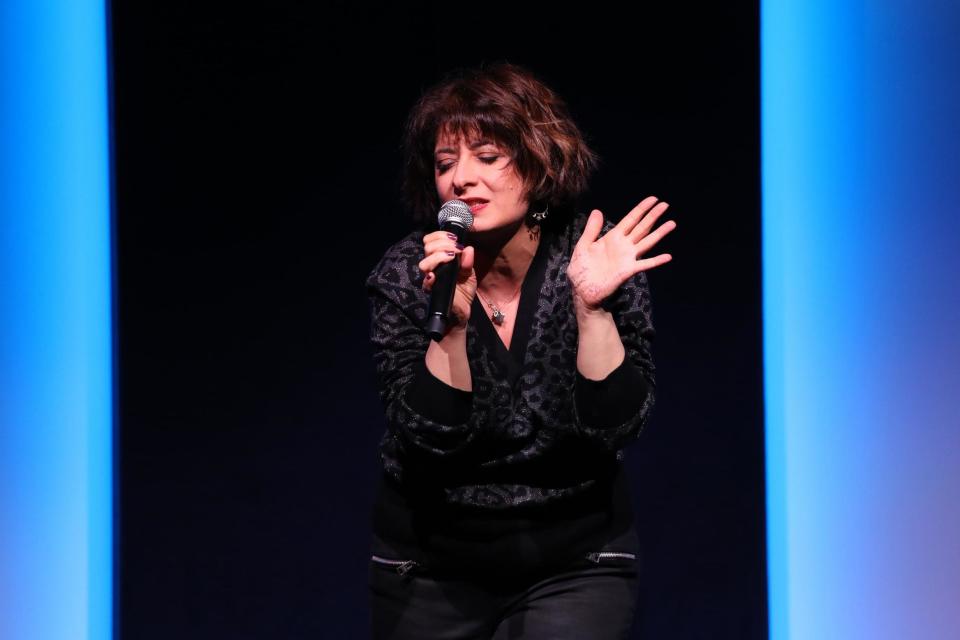Comedy's #MeToo moment: Why female comedians have been speaking out as the circuit went silent

While the live comedy circuit has been non-existent during lockdown, another, darker side of comedy has reared its head. And this one is no laughing matter. In recent weeks we have seen its ugly side emerge into the light as a grassroots #MeToo movement has sprung up, with allegations of sexual misconduct dominating social media feeds and making headlines.
One of the first stories concerned comedian/broadcaster Hardeep Singh Kohli. Comedian Lulu Popplewell alleged that Kohli offered to help her career. She claimed: “He said it would be best if I visited him to come and write on the show, staying in his bed in Glasgow and having a ‘little spoon’.”
Popplewell’s tweets encouraged others to follow suit. Singer Ivy Paige claims Kohli sent her unwanted late-night messages: “I was worried I wouldn’t be believed or wouldn’t get bookings if I spoke out, but I wanted to support Lulu and encourage other women to come forward.”
Actress Nicola Thorp alleges that Kohli approached her about making a documentary about women’s rights in Pakistan. She claimed that when she turned down his sexual advances, the documentary ceased to exist: “I doubt it ever did,” she wrote.
Another major story involved Tez Ilyas, a former high-flying civil servant from Blackburn who has had his own Channel 4 show, The Tez O’Clock Show. While Kohli has not yet publicly responded to these allegations, Ilyas tweeted a series of apologetic statements. He admitted that “the way I sometimes used women for my own personal gratification is just not OK”, adding that he had been in therapy to try to understand his behaviour. He later clarified that he has never engaged in sexual abuse. These stories opened the floodgates. Comedian Chelsea Hart revealed that a stand-up she slept with took a picture of her naked and sent it to someone without her consent. Some understandably do not want to go public. There is apparently a growing WhatsApp list of male comics to avoid.
What these and other stories have revealed is the nasty underbelly that endures in comedy. Stevie Martin (not to be confused with banjo-playing American Steve Martin) told the Daily Telegraph that a comedy promoter “paid” men who played his gig with phone numbers of female stand-ups in lieu of cash. “How are we supposed to feel respected, and even a part of, a community that appears to view us as sport?” she added.
In some respects this is an extension of the sexism problem that Katherine Ryan spoke about on her podcast recently when she said that she would no longer appear on BBC2’s Mock the Week because it meant other women would miss out. Ryan said: “I had to stop doing it because I knew that every time I was booked I was taking food out of the mouth of another woman.” She also quipped that women had to share their stories on social media as they had “zero primetime entertainment TV shows”.
Shappi Khorsandi, a stand-up since the Nineties, tweeted a litany of incidents: “It’s endless. Arse grabbed before going on stage, ‘Look out, stripper’s here,’ at my manager’s funeral. ‘Shappi’s here ... you get the duct tape, I’ll open the boot.’ All by massively respected guys. And other endless, grubby, demeaning s**t over the years.”
If there is anything positive to be taken from these recent stories it is that at last women are now being heard, believed and not expected to laugh off demeaning incidents to be one of the lads. “I don’t know a single female act who doesn’t have an unsavoury story about abuse or harassment when it comes to working in comedy,” said Kiri Pritchard-McLean recently.
Having observed comedians at reasonably close quarters for two decades, there does seem to be a real problem that refuses to go away. Comedy has a reputation for attracting men who may feel they are transgressive, boundary-pushing mavericks. And if they push those boundaries on stage maybe they are inclined to push them off stage too. Which is not to say that mainstream stand-ups cannot be predatory as well. Add to that a culture of drinking, late nights, loneliness, travel, emotional immaturity and social awkwardness and you have a cocktail for misconduct. All of which is categorically not excusing it, just a possible explanation for why it is more prevalent in comedy than in your local supermarket. There is also the further problem of not having a direct route for a complaint. There is no HR department in the stand-up industry.

There may be one soon though. The Live Comedy Association was recently formed with the aim of helping comedians during lockdown. They have responded quickly to these allegations: “We believe these issues exist in every corner of our industry, from open-mic nights to professional comedy venues and festivals, and we are committed to addressing change at every level,” it stated. “First and foremost, the LCA is not a space for harassers, abusers, or dangerous individuals — if that’s you, those aren’t the values of this organisation.”
Ilyas was on the LCA’s steering group but stood down when he issued his statement. In a development that nobody predicted, one of the men hoping to succeed him then withdrew, though he denies that this is because allegations were made against him.
In Daniel Sloss’s acclaimed show X, he talks about how a female friend was sexually assaulted by his male friend. Sloss has to live with the guilt that looking back he had seen the signs of what his friend was capable of and did not act. Men have the ability to change the narrative: “When one in 10 men are shit and the other nine do nothing they might as well not f***ing be there,” says Sloss.
You don’t have to hang about for long in the green room to hear stories. The comedian with an unusual fetish. The stand-up with the voracious sexual appetite. Misogyny masquerading as banter. Nothing criminal but it lays bare something rotten in the state of stand-up. Light entertainment can get very dark once the curtain falls. And if we’re honest, plenty of men in comedy probably have a story somewhere, of an inkling about someone, a blind eye turned.
Needless to say, it is not exclusive to the UK. Louis CK’s sexual misconduct scandal in 2017 springs to mind. Recent reports about the alleged behaviour of US comic Chris D’Elia prompted the outpouring of stories over here.
There is talk that behind the scenes the industry is attempting to clean up its act. But it has a long way to go. High-profile acts and their agents seem very quiet at the moment. Perhaps they are hoping the problem will go away when comedians finally start gigging again. And The Times reported that Channel 4 has indicated it is maintaining its relationship with Ilyas and has projects in development with him. Cancel culture only seems to reach so far.
The comedy industry clearly needs sorting out. Quickly. This does feel like a watershed moment. It’s a great thing that women feel they can speak out at last. But men in clubs, television, agencies, management, need to speak out too. Silence is part of the problem. Men need to be allies. This pandemic-induced hiatus could be the biggest chance yet to bring about a sea change. And if comedy cannot clean up its own mess maybe it does not deserve to return.

